 |
| Illustrative photo. (Photo: Investment Newspaper) |
More specifically, of the above 6,358 administrative procedures, there are 4,377 administrative procedures related to production and business activities. Along with that are 8,977 business conditions; 3,086 products and goods subject to specialized inspection; 640 business reporting regimes...
With such a clear address, the feasibility of the requirement to cut at least 30% of compliance costs this year according to Resolution 68-NQ/TW on private economic development is very high. The possibility of reduction will be much higher when implemented synchronously with solutions to ensure that 100% of administrative procedures related to enterprises are carried out online, smoothly, seamlessly, effectively, transparently, minimizing paperwork; organizing the implementation of administrative procedures regardless of administrative boundaries within the province, to be completed in 2025.
However, the compliance costs that businesses are waiting to reduce are not only in administrative compliance.
According to the synthesis of experts on the business environment, the legal compliance costs of enterprises need to be calculated, including the costs of market entry, costs of compliance with legal regulations on business conditions, investment conditions, costs related to accessing information, receiving and resolving business problems, time costs, costs for inspection and examination activities and informal costs... From this perspective, the legal compliance costs of enterprises will be very large, significantly affecting not only business efficiency, but also business confidence of enterprises.
Analyzing only informal costs, although the Provincial Competitiveness Index Report 2024 recorded that the number of enterprises having to spend up to 10% of revenue to pay informal costs continued to decrease, the rate of enterprises having to pay informal costs increased, especially in the fields of inspection, examination, implementation of conditional business procedures and land-related procedures. The cause of this situation is said to be that the laws and regulations are applied inconsistently, lacking clarity and synchronization in both the quality of regulations and enforcement mechanisms.
In the recently published Vietnam 2045 Report - Breakthrough: Institutions for a High-Income Future (Vietnam 2045 Report), the World Bank also called this the "avoidance of compliance" reaction of businesses when the regulatory environment changes, administrative procedures continuously proliferate...
To reduce the burden of legal compliance costs for businesses, reforms towards further cutting and simplifying administrative procedures are a priority. In fact, the Government has recognized the effort to reduce the regulatory burden on businesses early. There have been concerted efforts to deal with this since 2007, through the issuance of Decision 30/QD-TTg approving the Project on Simplifying Administrative Procedures in State Management Areas for the 2007-2010 period. At that time, 30% of administrative procedure compliance costs were cut, saving people and businesses an equivalent of VND 30,000 billion/year...
Then, from 2014 to present, reform efforts have been accelerated with Resolution 19/NQ-CP (later named Resolution 02/NQ-CP of the Government on solutions to improve the business environment and enhance competitiveness); Resolution 68/NQ-CP on simplifying business regulations as well as implementing the one-stop mechanism. Specific tasks and targets have been expanded to business registration, tax payment, access to electricity, establishment of ownership, investor protection, import-export procedures, dissolution and business transparency...
Looking back, while successive efforts to reduce compliance costs for businesses have yielded some results, the burden remains large, requiring more drastic cuts.
Analyzing this situation, the Vietnam 2045 Report believes that this is the result of regulations related to enterprises still focusing on control and management. This also means that the practical results of this round of cutting business compliance costs will not stop at the above figures when being implemented with a new mindset in law-making of Resolution 66-NQ/TW. That is, shifting from "management" to "service", from passive to proactive, creating development; law-making must be one step ahead, law enforcement must be strict, fair, and substantial; decentralization and delegation of powers must be clear, linked with accountability, eliminating the "ask - give" mechanism, eliminating local interests and group privileges.
According to Investment Newspaper
https://baodautu.vn/doanh-nghiep-dang-chi-phi-bao-nhieu-de-tuan-thu-thu-tuc-hanh-chinh-d289553.html
Source: https://thoidai.com.vn/doanh-nghiep-dang-chi-phi-bao-nhieu-de-tuan-thu-thu-tuc-hanh-chinh-213846.html


![[Photo] Vietnamese and Hungarian leaders attend the opening of the exhibition by photographer Bozoky Dezso](https://vphoto.vietnam.vn/thumb/1200x675/vietnam/resource/IMAGE/2025/5/29/94d8ceca5db14af3bf31285551ae4bb3)



![[Photo] Prime Minister Pham Minh Chinh meets with Hungarian President Sulyok Tamas](https://vphoto.vietnam.vn/thumb/1200x675/vietnam/resource/IMAGE/2025/5/29/dbcaa73e92ea4448a03fe1d0de6d68e8)


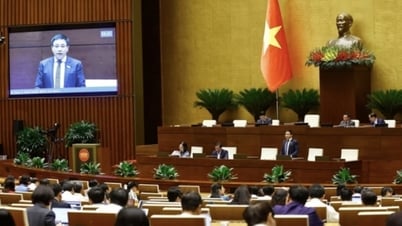

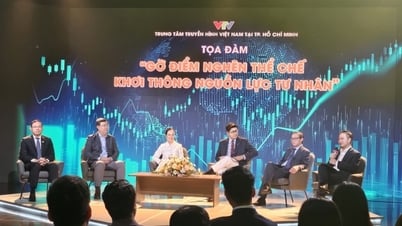












![[Photo] Prime Minister Pham Minh Chinh receives a bipartisan delegation of US House of Representatives](https://vphoto.vietnam.vn/thumb/1200x675/vietnam/resource/IMAGE/2025/5/28/468e61546b664d3f98dc75f6a3c2c880)





























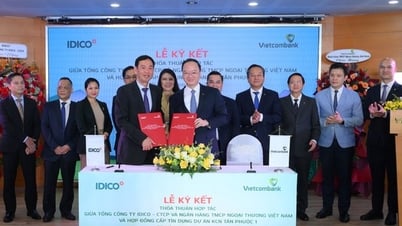








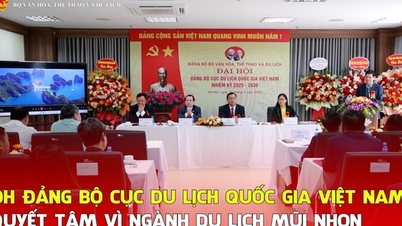







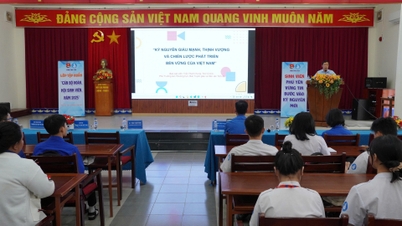















Comment (0)